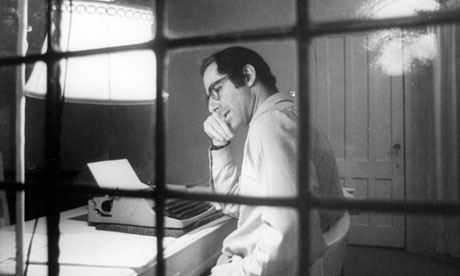Philip
Roth has been making headlines recently by refusing to publish anything new (he
has officially retired from writing.) But I couldn’t really add my voice to the chorus of voices that are reacting to
that news, because I’d never really read the man. That is, until I picked up Nemesis
a couple of weeks ago. So, what
is my impression of Roth?
In
truth, I don’t feel like my having read his 31st and final novel
gives me too much insight into this perennial Nobel contender. Roth’s got more
prestigious awards than you can shake a stick at, and the only award Nemesis was shortlisted for was the Wellcome Trust
Book Prize, which happens to celebrate medicine in literature (the book
concerns a war-time Polio epidemic.)
But
I was wholly drawn into this story of a young playground director who finds
himself battling the scourge of polio at home, while his best friends fight on
the front lines of World War II. What with
the baseball backdrop, the overhanging shadow of war, and a New York-area Jewish
youth wrestling with religious themes, the book felt like a fitting companion
to Chaim Potok’s The Chosen , a book
I absolutely loved. (Mr. Cantor? Mr. Galanter? Eh? Eh?) But unlike The Chosen , which ends up affirming
religious faith, Nemesis is the account of faith lost.
The
book’s title is never really explained, but since the story unravels like a
classic Greek tragedy, we can only assume that “Nemesis” signifies the Greek
goddess of vengeful retribution, come in the form of the Polio virus. I’ve
spoiled enough of the story as it is, but I’ll just say that Roth breathed
enough life into the time period and
setting to make me want to check out some of his other work. You should, too.

